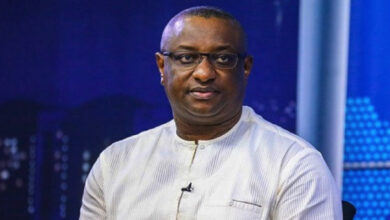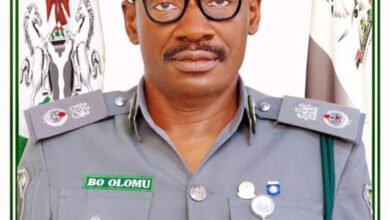

By Elizabeth Toyon & Maria Yusuf
As Muslims across Nigeria celebrate this year’s Eid-el-Kabir , the prices of sacrificial animals particularly rams and cows have soared to unprecedented levels, leaving both buyers and sellers grappling with the effects of insecurity and economic hardship.
Eid-el-Kabir, also known as the Festival of Sacrifice, commemorates the willingness of Prophet Ibrahim to sacrifice his son in obedience to Allah’s command. In turn, Muslims around the world observe the ritual by slaughtering animals usually a ram, cow, or camel and distributing the meat among family, neighbors, and the less fortunate.
But with current prices, that tradition is becoming increasingly out of reach for middle and lower income families.
A market survey carried out by JournalNG team in Lagos revealed that the cost of a matured cow now ranges between ₦2.7 million and ₦3 million, while rams are being sold for as high as ₦750,000. These prices represent a significant spike compared to previous years and have raised concerns among worshippers who see the annual sacrifice as a religious obligation.

Traders attribute the sharp increase in prices to persistent insecurity, particularly in the northern regions of Nigeria. Due to frequent clashes between herders and farmers, as well as incidents of banditry along major livestock routes, many sellers now resort to importing rams from Niger Republic. These animals are transported through northern Nigeria under tight conditions, often involving extra logistics and security costs, which ultimately drive up prices.
Mallam Rabiu Kabiru who hails from Kastina state , a ram and cow seller at a major livestock market, in Apapa said the market has been struggling with low patronage despite the festivities.
According to him, even though sellers incur higher costs, many of them are not making significant profits due to the low sales volume.
Kabiru said that the development reflects broader concerns over the country’s economic reality and with inflation at record highs and disposable income shrinking, many families are forced to either forgo the ritual entirely.

“Things have changed alot, a long-time, we formerly sourced rams from nearby towns and villages. But with all the violence and cattle theft, we now get many of them from Niger Republic. That journey is not easy ,it costs more, and that’s why the price has gone up.
“ People are just looking, asking questions, and walking away. Last year by this time, I had sold more than half of my stock. Now, I’m still waiting for serious buyers.”
For Mr Shehu Musa , a civil servant and father of four the search for a ram ended in disappointment. He explained that the decision not to buy a ram this year was painful for his family, especially for his children and relatives who came to celebrate Salah with excitement and celebration.
Frustrated and visibly emotional, Musa blamed the rising cost of living and poor economic conditions for pushing many families like his into such difficult situations.

“ I went to three different markets and still couldn’t find a ram under ₦200,000, Last year, I bought a decent ram for ₦85,000. This year, the same size is ₦250,000 in the market . This is something I have done every year, even if it means tightening my belt. But this time, I don’t think I can afford it. We might just buy meat in small quantity and do what we can.”
“ I’ve been saving up for months, but the prices of rams and cows are still a challenge for me. It’s not just about the money, it’s about fulfilling my religious obligation. I wish there was a way to make it more affordable for everyone”
Few days before the Eid El Kabir festival, Aminu Ibrahim who sells rams at Alaba Rago, a popular livestock market at Ojo area of Lagos said the price of ram was between N240,000 to N300,000 depending on the size.

He explained that the price has increased compared to the N170,000 to N220,000 cost last year .He complained that this is due to the economic crisis in the nation adding that fuel price has increased this year compared to the cost last year.
Ibrahim revealed that buyers are still making purchases despite the cost.
” The price of ram has increased because of major factors like the downturn and high cost of transportation.These rams are transported from the north and it is a far distance.The high cost is a problem but we’re still making sales.”
Afolabi Mustapha who bought a ram at the Alaba Rago market said it is more expensive compared to last year.He said he bought the same size of ram he bought for N180,000 last year for N200,000 this year.
He complained that the difference in cost is much but he has to buy it as it is a tradition which he practices yearly.He appealed to the government to ease the economic pressure on the masses.
“I just have to purchase ram this year because it is what I do yearly.The festive period is a time when my family always come together to celebrate.It is expensive for me but I don’t have a choice.The government should do something fast to help our economic condition because many people do not have the opportunity to celebrate the Salah as they desire.”
Another buyer, Salami Sefiu said he couldn’t afford to buy the size of ram he wished to buy because of the increased cost.He added that the economy is not friendly and he has to buy what he can afford.

” This size of ram I bought is small compared to what I have been buying years back.If I decide to buy the size I want, there won’t be enough money left for me to buy other things needed for preparing it.I am beginning to get tired of the high cost of living.The government should come to our aid.”
It is obvious that the dwindling economy is affecting people who work so hard but can’t celebrate a yearly festival conveniently.
As with previous years, traders like Kabiru and Ibrahim expect prices to drop significantly after the Salah festivities. During visit to the market after the salah celebration , our team discovered a major decrease in prices. Speaking with Kabiru and Ibrahim during a second visit to the market they revealed that rams that were sold for N750,000, N280,000, and N300,000 during the celebration was been sold for ₦600,000 , N200,000 , N250,000 or less because there is decrease in demand, and they have to sell what’s left so they don’t lose too much.
While this may offer an opportunity for some, it is of little comfort to Muslims who must perform the animal sacrifice during a specific window on Eid day, as prescribed in Islamic tradition.
Fears of what next year holds is arising in the hearts of many citizens. While the spiritual significance of Eid-el-Kabir remains unchanged, the realities on the ground are prompting a reevaluation of how Nigerians celebrate. For many, the festivities will go on but perhaps with a different kind of sacrifice: one of financial compromise.











